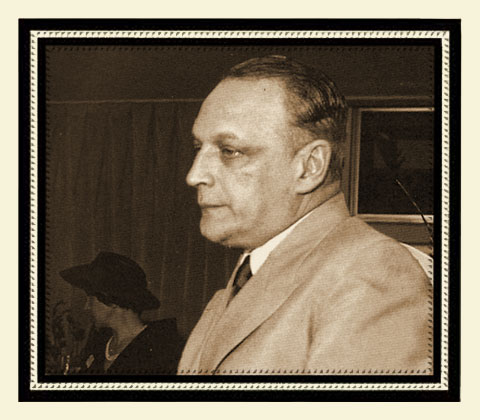Rio de Janeiro, 1889 — 1948
Businessman, economist, historian, polítician
Of English and Scots descent, as a boy moved with his family to São Paulo, where he lived with his maternal grandfather, Inácio Wallace Cochrane, a politician and important businessman who was to influence him greatly. He graduated in engineering and with his brothers started a construction company in Santos which in the 1920’s became an important public works contractor. A practitioner of Taylorism, he implanted the first experiments with worker support and professional apprenticeship, becoming one of the most important economic thinkers in Brazil, a defender of state intervention and protectionism of the emerging Brazilian industry. In 1928 he was one of the founders of Centro das Indústrias do Estado de São Paulo (CIESP), the civil association which from 1931 to 1939 adopted the name Federação (FIESP), of which he became president in 1937. He was a “deputado classista” (special congressmen representing different classes of workers) in the Constitution of 1934 and congressman until the coup in 1937 which saw in the Estado Novo regime which he ended up supporting. At the height of the Ação Integralista Brasileira, a Fascist movement created by Plínio Salgado which existed legally from 1932 to 1937, he was denounced as being of Jewish descent and leader of the Brazilian “Synagogue”.
He met Stefan Zweig during his first visit to Rio de Janeiro, in 1936, and when the author went to São Paulo in 1940 he visited him at home and delighted in his library. He collaborated in the preparation of Zweig’s Brazilian book, supplying important background material about the country’s economic history, its problems and challenges in becoming a great power. He is the only collaborator cited by Zweig in the book Brazil, Land of the Future.
Founder and director of industrial companies, coffee exporters and financial firms, and defender of economic planning, he had a stormy controversy with Eugênio Gudin, a supporter of liberalism. He was senator for São Paulo from 1947 to 1948, member of the Brazilian Academy of Letters, and died while at its headquarters.
Address listed: 15 Rua Boa Vista, São Paulo, Brasil.
